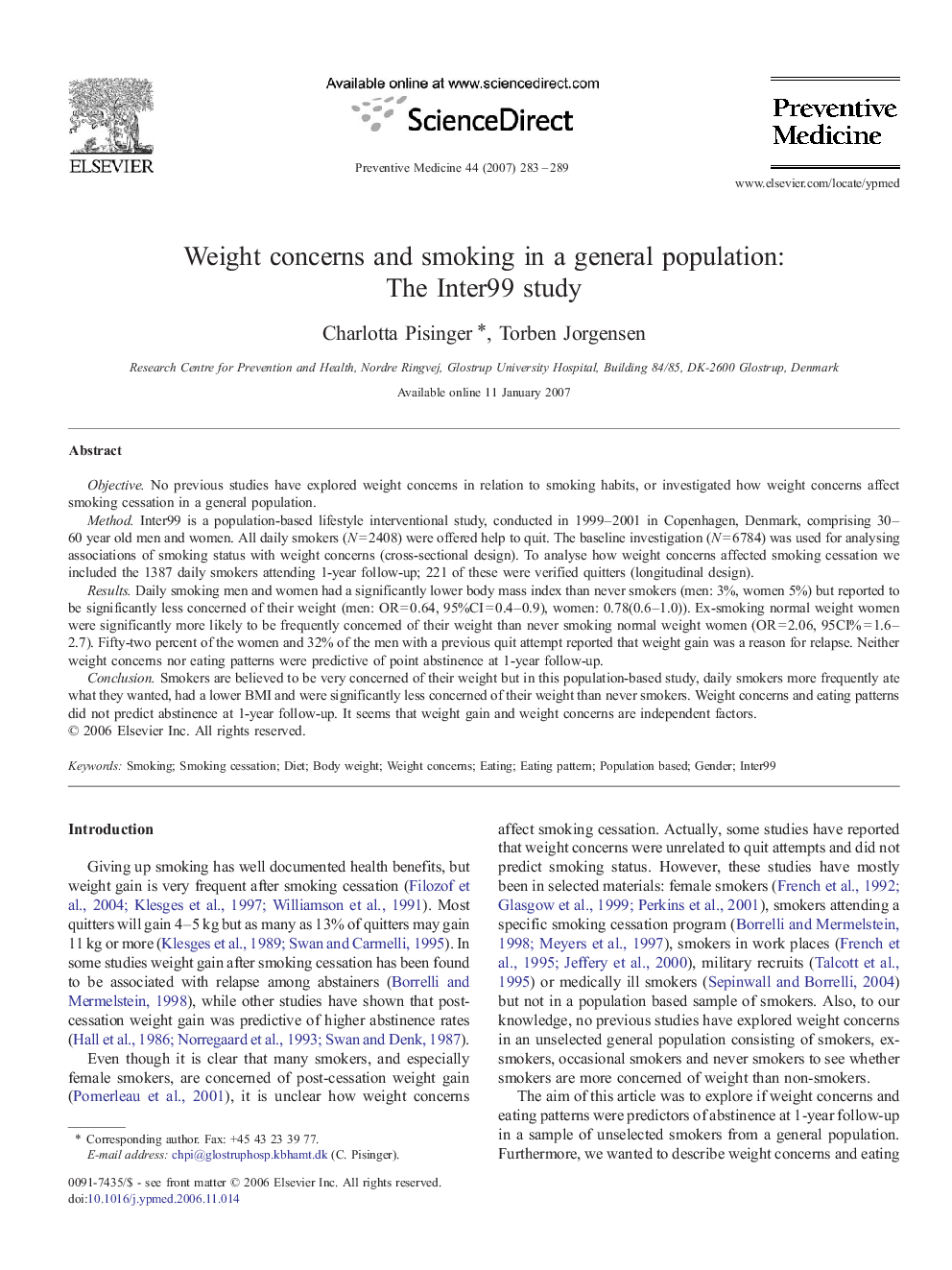| Article ID | Journal | Published Year | Pages | File Type |
|---|---|---|---|---|
| 3101923 | Preventive Medicine | 2007 | 7 Pages |
Objective.No previous studies have explored weight concerns in relation to smoking habits, or investigated how weight concerns affect smoking cessation in a general population.Method.Inter99 is a population-based lifestyle interventional study, conducted in 1999–2001 in Copenhagen, Denmark, comprising 30–60 year old men and women. All daily smokers (N = 2408) were offered help to quit. The baseline investigation (N = 6784) was used for analysing associations of smoking status with weight concerns (cross-sectional design). To analyse how weight concerns affected smoking cessation we included the 1387 daily smokers attending 1-year follow-up; 221 of these were verified quitters (longitudinal design).Results.Daily smoking men and women had a significantly lower body mass index than never smokers (men: 3%, women 5%) but reported to be significantly less concerned of their weight (men: OR = 0.64, 95%CI = 0.4–0.9), women: 0.78(0.6–1.0)). Ex-smoking normal weight women were significantly more likely to be frequently concerned of their weight than never smoking normal weight women (OR = 2.06, 95CI% = 1.6–2.7). Fifty-two percent of the women and 32% of the men with a previous quit attempt reported that weight gain was a reason for relapse. Neither weight concerns nor eating patterns were predictive of point abstinence at 1-year follow-up.Conclusion.Smokers are believed to be very concerned of their weight but in this population-based study, daily smokers more frequently ate what they wanted, had a lower BMI and were significantly less concerned of their weight than never smokers. Weight concerns and eating patterns did not predict abstinence at 1-year follow-up. It seems that weight gain and weight concerns are independent factors.
